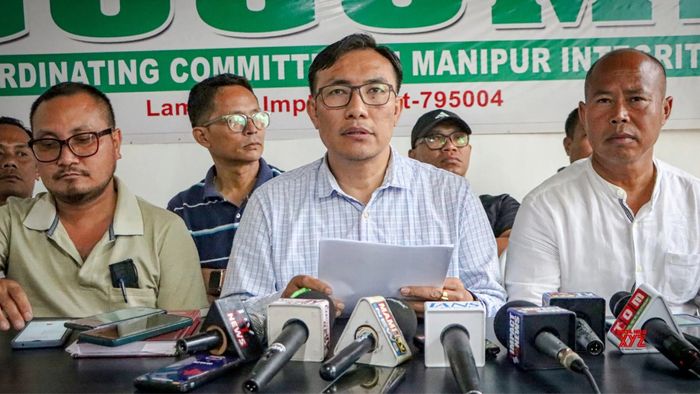COCOMI submits memorandum to PM, challenges Kuki groups’ claims on Manipur’s hill areas
The Coordinating Committee on Manipur Integrity (COCOMI) has submitted a detailed memorandum to the Prime Minister, countering recent claims made by the United People’s Front (UPF) and the Kuki National Organisation (KNO) regarding historical jurisdiction and ancestral land rights over Manipur’s hill areas.

- Nov 17, 2025,
- Updated Nov 17, 2025, 12:49 PM IST
The Coordinating Committee on Manipur Integrity (COCOMI) has submitted a detailed memorandum to the Prime Minister, countering recent claims made by the United People’s Front (UPF) and the Kuki National Organisation (KNO) regarding historical jurisdiction and ancestral land rights over Manipur’s hill areas.
The memorandum was prepared following the UPF–KNO meeting with Home Ministry officials in New Delhi on November 6 and 7, during which the groups reportedly stated that the hill areas of Manipur were never under the authority of the Maharaja of Manipur. COCOMI described this assertion as “misleading” and said it was necessary to present historical records, colonial-era documents, and judicial rulings that, according to the organisation, reflect a different picture.
COCOMI argued that historical evidence—including references from the Manipur State Darbar Rules of 1907—showed that both the valley and the hill areas were administered under the Manipur State. It cited post-Independence legal continuity, pointing to 1963 and 1979 court judgments that recognised the State’s authority over forests and other lands in the hills.
The memorandum also challenged the Kuki groups’ claim to ancestral land, describing the community’s presence in Manipur as largely a “colonial-era settlement” facilitated by British officials between the mid-19th century and early 20th century. It referred to records of British Political Agent William McCulloch, who documented the settlement of Kuki villages as part of the colonial administration’s frontier strategy.
Also Read: Manipur: Kuki-Zo groups adopt Nampi Conclave Declaration, outline unified political roadmap
COCOMI further stated that the term “Kuki” itself emerged during the colonial period and functioned as an administrative classification rather than an indigenous identity, arguing that this weakened the basis for claims of indigeneity.
The organisation emphasised that customary rights over land and forests exercised by tribal communities were historically usufructuary in nature—meant for livelihood—and did not amount to proprietary ownership under the legal framework of the time.
Concluding the memorandum, COCOMI urged the Government of India and the Ministry of Home Affairs to dismiss what it termed “ahistorical claims,” stating that acceptance of such demands would undermine the territorial integrity of Manipur.
The memorandum was signed by COCOMI convenor Khuraijam Athouba.